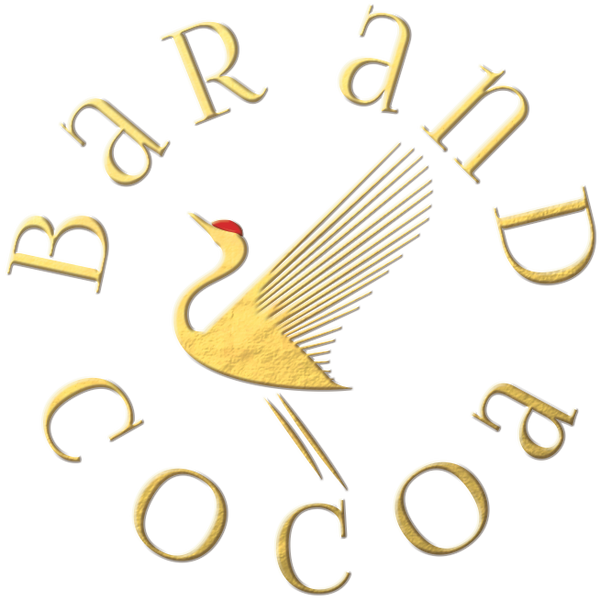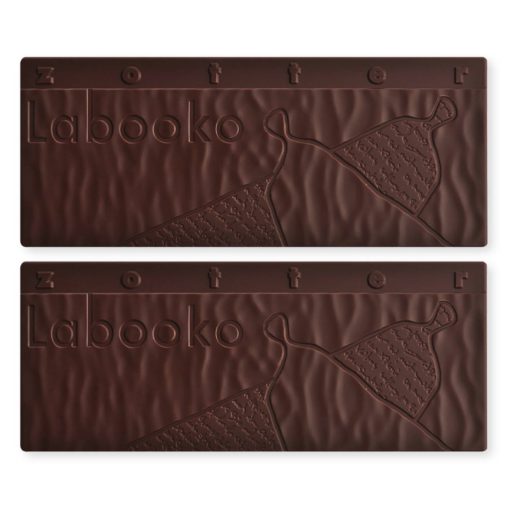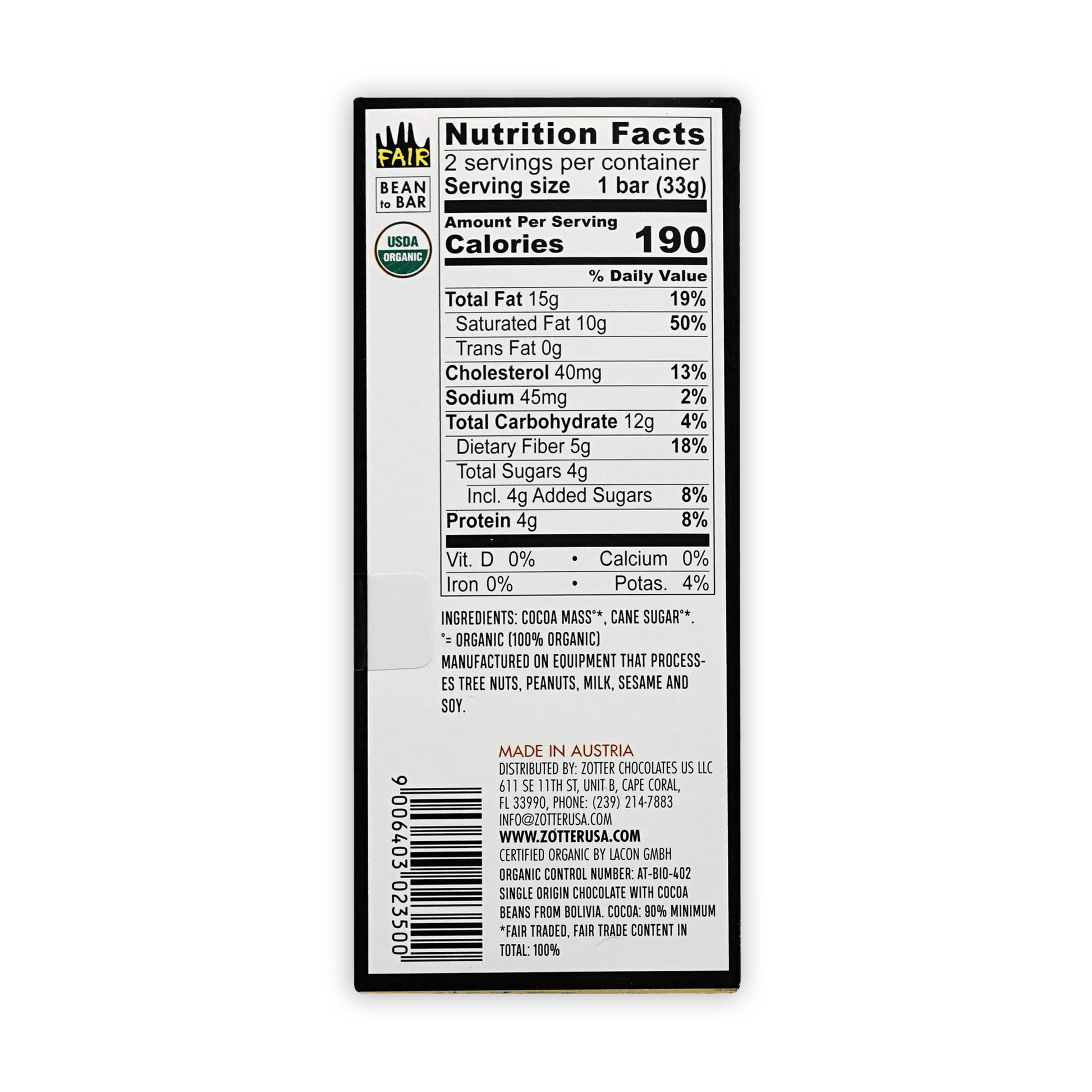
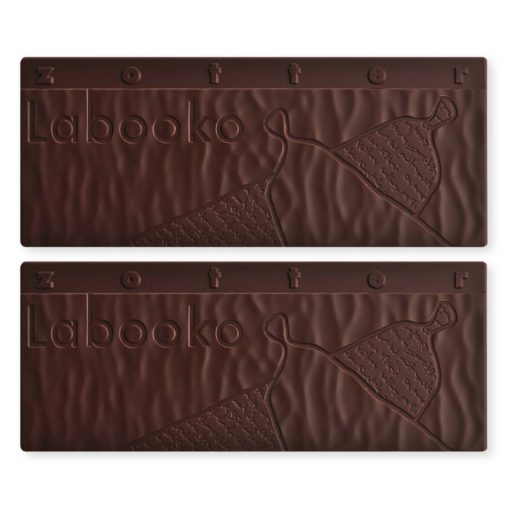
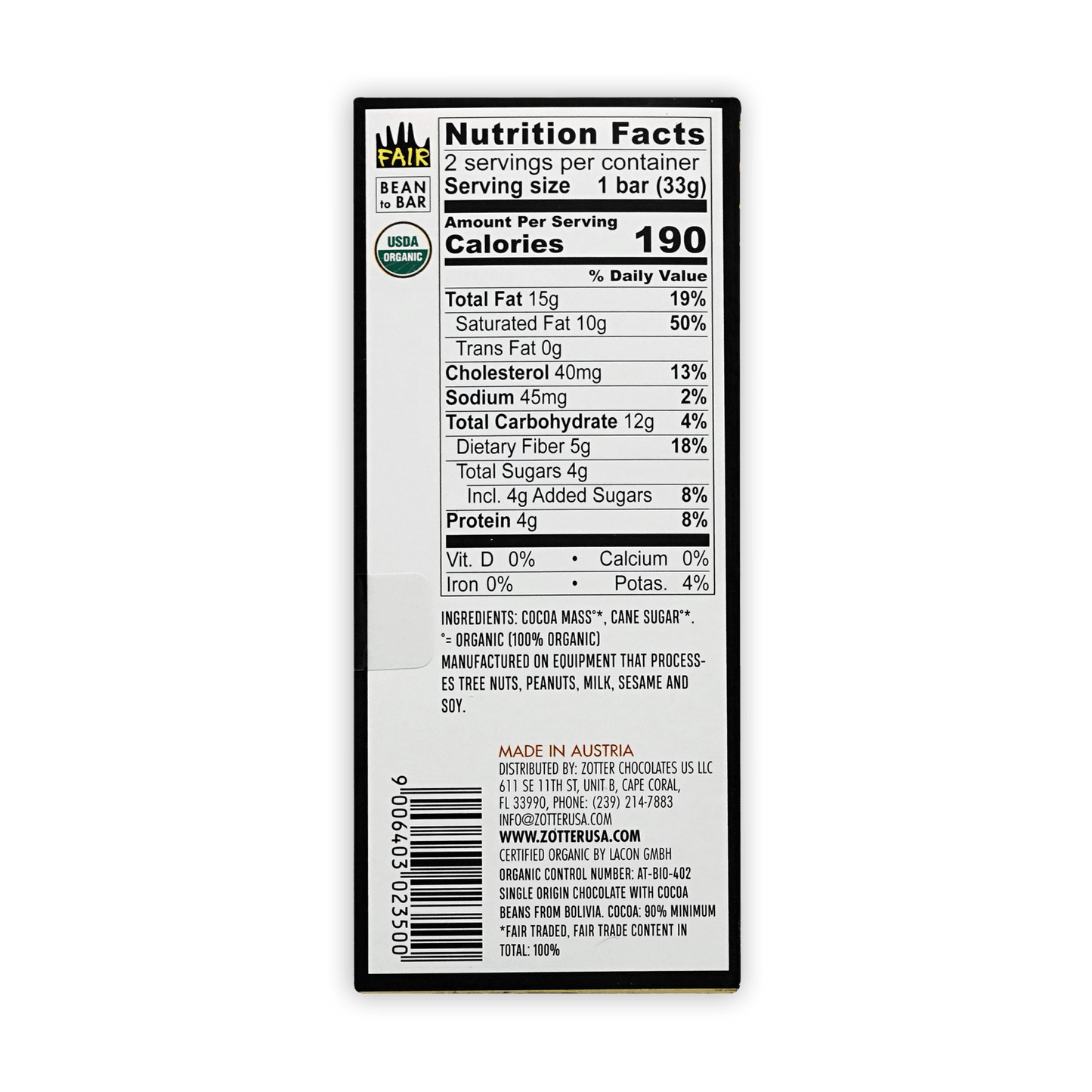
Maker
ZotterZotter was started by a husband and wife team in 1987. They have made many strides over the last decade tucked away in a picturesque rolling hills landscape of Austria. Zotter is the only company in Europe that uses all organic and Fair Trade ingredients. They also have sustainable business practices, using solar and geothermal energy to run their entire production facility, and use packaging made from renewable sources. Zotter's philosophy has garnered them many awards both for their business success and chocolate making. They are a family business that adhere to family principles. This allows for a plethora of creative freedom to create fun and exciting chocolate bars. Zotter first produced their "hand scooped" bars with couverture from Valrhona and Callebaut but always dreamed of making their own chocolate, and in 2006 this became a reality. We feature Zotter's Labooko line of chocolates, that feature cacao sourced from all over the world. Zotter has the largest line of chocolate in the world with over 450 different chocolate in their range.
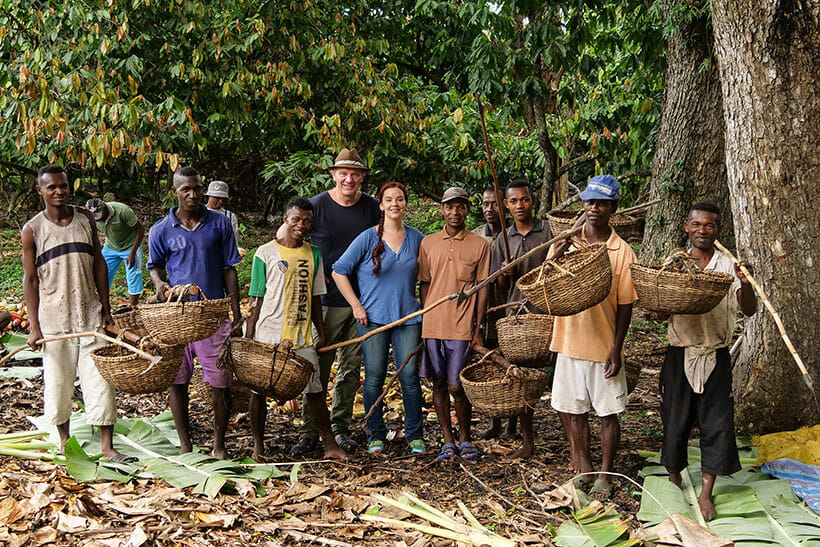

Cacao Region
Alto Beni River, BoliviaThe Beni River Valley in northern Bolivia is home to the river of the same name, north of the Bolivian capital of La Paz. Upstream, far beyond the main cities, cacao grows wild along the upper part of the Beni River, there called the “Alto Beni.” Locals often travel along the water in boats, stopping every once in a while to collect fresh pods from the trees; that practice has earned Alto Beni’s harvest the nickname “wild cacao.” This is one of the southernmost places that cacao is grown in the Americas.
Cacao Estate
Cooperative El CeiboEl Ceibo, committed to protecting their native rainforest, became the first certified-organic cocoa cooperative in the world in 1988. Utilizing a tiered cultivation system, El Ceibo works to protect against the degradation of their lands using natural and organic methods. Today, El Ceibo farmers grow an estimated 70 percent of the total organic-certified cocoa cultivated in Bolivia. The cooperative’s farmers proudly grow their cocoa without using chemical pesticides or fertilizers, and strive to continue expanding their operations.
Cacao Strain
Cacao Strain: BenianoThe native wild-grown cacao of Bolivia, Beniano is perhaps better known as nacional de Bolivia or even cacao silvestre. That’s because this strain grows wild along the upper part of the Río Bení in northern Bolivia; locals collect pods via canoe, as they ripen. The further south you go, the more indigenous genetic material the fruits tend to contain. Beniano have relatively small pods, meaning less yield per fruit, and a sweet, nutty, and fruity flavor. The overall rich and balanced character of the beans means that even slight changes in fermentation or roasting can cause a huge difference in the final taste of a product, resulting in an overall crowd-pleasing cacao.

